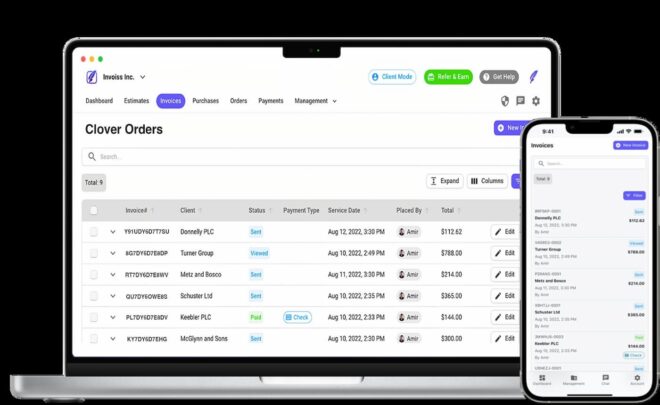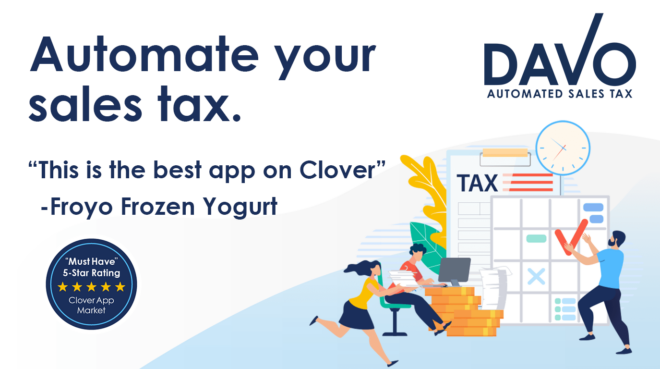Tips & strategies to recruit & retain millennial employees
Editorial Team
8 min read
Just as email replaced the fax machine, a new generation is taking over the workforce. Defined as those born between 1982 and 2000, millennials are saturating today’s employment pools and is now the largest generation in the labor force.
But, why is this generation different? What keeps millennials interested in specific jobs and likely to stick around? As you expand your business with Clover, it’s essential to know how to attract and retain millennial employees. If you don’t, you could find yourself short-staffed—or even bankrupt.
A huge portion of business success is attracting and retaining top talent. Part of that task is getting good employees through the door before they take another offer. In addition to solid millennial recruitment strategies, make sure to have a thorough and speedy employee screening process in place through a reputable service like ShareAble for Hires.
Learn the unique characteristics that make millennials great employees and discover the best ways to recruit this generation with these tips.
Common characteristics of millennial employees
These employee characteristics separate millennial hires from previous generations:
Tech-savvy
Many millennials remember dial-up and life before 5G. They’ve transitioned from house phones and pagers to smartphones and VR. This evolution means two things: Millennials are adaptative and proficient with the technology your small business depends on.
Culture-centered
Past generations might’ve been satisfied to simply clock in and clock out for a steady paycheck. In contrast, millennial employees want a welcoming work environment that’s clean, safe, and maybe even stocked with snacks.
A welcoming workplace is essential for millennials because:
- Employees who are happy with their work environment are more likely to stay, reducing employee turnover costs.
- Satisfied employees are more likely to refer friends, naturally bolstering recruitment. However, unhappy employees tell their friends to stay away, negatively affecting your reputation.
- Consumers are increasingly aware of company culture. Many people choose to interact with businesses that have been publicly endorsed by employees on sites like Glassdoor.
- Millennials who say they have a great workplace are 59 times more likely to endorse the company.
What’s more, employers with in-office break rooms, flex time, and dog-friendly policies often get bonus points from millennials. If you’re stuck in old-fashioned business culture, you might have trouble attracting new talent.
Meaning-motivated
In addition to positive workplaces, millennials tend to seek meaningful work. Even if they’re not out to change the world, millennials want work that’s part of a larger purpose instead of just performing blind task execution. They like the satisfaction of doing a good job and are likely to appreciate praise and recognition.
Millennial employees compared to other generations
Older workers may struggle with adapting newer technologies. Gen Z employees—who grew up with technology already enmeshed in their lives—might have trouble with analog procedures. Millennial employees are more likely to be well-versed in both newer and older tech. That can mean smoother onboarding.
Millennial recruiting strategies
In general, millennials are open to change. They’re often proficient with technology and open to coaching—just as long as they have the right motivation.
If you’re looking to attract this segment, here are six easy strategies for recruiting millennials:
1. Social media
Bring your message to the people. Millennials often spend a lot of time on social media and rely heavily on online reviews—whether for products, restaurants, or even employers. Work to cultivate a positive presence on sites like Glassdoor and LinkedIn.
Post positions on Indeed, Twitter, or even Facebook—so long as your company profile showcases a positive culture.
2. Team interviews
Millennials tend to challenge hierarchical structures in favor of collaborative team efforts. They don’t disdain authority, but rather believe good ideas should transcend rank or title.
Show your candidates their voices will be heard with mixed-group interviews in which everyone participates equally. This helps demonstrate your company has a group focus, rather than a strict, authoritative hierarchy.
Additionally, highlight the contributions and profiles of “lower ranking” employees on your website, rather than just those at the top. Demonstrating you recognize and value all contributions can attract millennial job seekers.
3. Highlight work culture
Millennials don’t just want a paycheck. They want to be involved in mission-driven work and valued as individuals, not just numbers.
In advertisements and interviews, focus on the company’s mission and purpose. Highlight how the role fits into the bigger picture and talk about your employee recognition program. Explain all the ways you support individual employees.
Besides money and job security, the top three millennial priorities are: paid holidays, great coworkers, and flexible schedules. Communicate your respect for work/life balance with plenty of paid time off and explain any flexible scheduling policies you have in place.
4. Highlight benefits and perks
Even if you can’t offer a giant compensation package, you can still provide smaller perks that make a big difference. In fact, almost all millennials surveyed said they would still consider a job with great employee benefits—even if the salary is less than expected.
Medical, dental, and optical insurance are highly coveted by 26-year-olds exiting their parents’ coverage. Other company selling points might include remote work, on-site daycare, extra paid time-off, weekly catered lunches, and occasional office happy hours.
5. Provide clear career pathways
Millennials are, in general, ambitious. Motivate employees with well-defined promotion and advancement opportunities. If you have a mentor program or coaching plan, call it out in hiring materials.
6. Quick hiring process
Finally, many millennial employees expect a quick hiring process. Too many businesses get caught in lengthy application reviews, drawn-out interviews, and sluggish pre-employment screening. Move too slow and you’ll lose candidates to employers who make faster hiring decisions.
Keep the process moving with modern, online employee screening and speedy application processing.
Millennial retention strategies
Before you hire, create a retention strategy that encourages great workers to stay. Millennials aren’t afraid to jump ship and tend to change jobs at higher rates than previous generations. A departing employee could cost thousands in lost time and hiring expenses.
To increase your odds of placing dedicated employees, try following these tips to help reduce employee turnover.
1. Provide opportunities for career development
Have a clear career path and conduct regular employee reviews with performance-based raises. Identify room for growth and coach employees into leaders who can mentor new hires as the company expands.
2. Offer opportunities for innovation
Companies who show a sincere interest in their millennial employees saw innovation increase eightfold and seven times more agility. This means employees were able to solve problems and fix inefficiencies in creative ways.
To keep employees engaged, allow them to show-off creative problem-solving skills, generate new ideas, and discover new growth opportunities. Consider setting aside 1-2 hours each week for employees to work on pet projects or host regular walk-in times to hear new ideas.
3. Work schedule flexibility
Not all companies can offer flexible schedules, but doing so is an effective millennial retention strategy. Burnout is a real threat that leads to costly turnover. Even the occasional remote workday or Flex Friday does wonders for morale.
Working around a parent or student’s schedule shows compassion and generosity, which makes you the type of employer they’re more likely to stay with.
4. Transparent and performance-based pay
Like wanting meaningful work, millennial employees crave clear expectations for responsibilities and future compensation. It can feel frustrating and unfair for a superior to receive a higher salary when they seemingly perform less work. Transparently documenting each role, its assigned duties, and corresponding pay grade can help prevent misunderstandings.
Get millennial talent in the door faster with ShareAble for Hires
Although office equipment, hiring procedures, and even generational ideals change, some things don’t: you’ll always want the best and brightest candidates to help your business prosper.
Millennials are young, skilled, and eager, but that doesn’t mean everyone born between 1982 and 2000 is an automatic hire. Before bringing a candidate into your company, it’s crucial to protect your business with comprehensive employee screening.
Designed specifically for small business owners, ShareAble for Hires can help get high-quality millennial talent through the door faster with near-instant, online employee background checks. With customizable insights backed by TransUnion, you get the exact reports you want, when you want them—without paying for extras or subscriptions.
Youth doesn’t always equal innocence. Peek into your applicant’s past with criminal background checks and detailed credit checks. These reports can reveal a candidate’s relevant financial and criminal history—histories that could pose a threat to your business and brand.
Quick and easy identity verification checks compare your applicant’s personal information to prominent government databases. Confirming your candidate is actually who they say they are can lead to more confident in your hiring decisions.
As office technologies become obsolete, so do hiring procedures. A traditional background check can take weeks to complete. Meanwhile, your millennial candidate gets antsy and signs-on elsewhere. If it takes more than a few minutes to get employee screening results, it’s time to update your process to reflect the tech-savvy, fast-paced millennial generation you’re trying to recruit.
Learn more about how Clover helps business owners run business better.
Related Posts
Offset card processing fees with Invoiss: Enhancing efficiency and streamlining payments
Hate paying sales tax? Missed a payment in 2020? Sign up for DAVO and never deal with sales tax again.
Popular Topics
Stay in touch
Sign up and learn more about Clover.
Thank you for your subscription!
More posts about starting a small business
eBook





